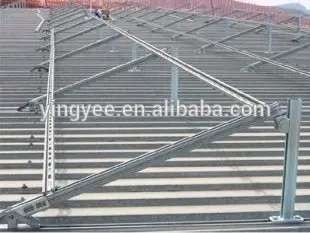
The Evolution and Importance of Roof Tile Rolling Machines
Roof tile rolling machines have revolutionized the construction and roofing industries by streamlining the process of producing high-quality roof tiles. These machines are designed to create various types of roofing tiles, including ceramic, concrete, and metal tiles, allowing for a versatile range of applications in both residential and commercial buildings. The modernization of roof tile production has been driven by advancements in technology, increasing demand for durable roofing materials, and the need for sustainable construction practices.
Historically, roof tiles were handcrafted, which was a labor-intensive process that required significant time and effort. The introduction of roof tile rolling machines marked a significant turning point in manufacturing efficiency. These machines utilize advanced engineering principles to produce tiles with precise dimensions and optimal durability, greatly reducing production time and costs. This shift not only improved the quality of roofing materials available but also made them more accessible to builders and homeowners alike.
One of the most notable advantages of roof tile rolling machines is their ability to produce tiles in various shapes, sizes, and colors. This customization enables architects and designers to create unique roofing systems that enhance the aesthetic appeal of buildings. Moreover, the machines can be adjusted to accommodate different materials, meeting the diverse preferences of consumers and construction requirements. For instance, metal tiles produced by these machines are not only lightweight but also offer superior resistance to weathering, making them an increasingly popular choice in modern construction.

Environmental awareness has also influenced the development of roof tile rolling machines. Many manufacturers are now focusing on producing eco-friendly tiles that promote sustainable building practices. The use of recycled materials in tile production and energy-efficient manufacturing processes helps reduce the carbon footprint of the construction industry. Additionally, roof tiles produced through these machines contribute to energy-efficient homes, as they can be designed with insulation properties that help regulate indoor temperatures, thereby lowering energy consumption.
Furthermore, the automation of roof tile production has enhanced the safety and working conditions in factories. With less manual labor required, the risks associated with tile production have been significantly reduced. Advanced features such as computerized controls, sensors, and monitoring systems ensure consistent quality and operational efficiency, while also minimizing human error.
In conclusion, roof tile rolling machines represent a significant advancement in the construction industry. Their ability to produce high-quality, customizable tiles quickly and efficiently meets both consumer demands and environmental challenges. As technology continues to evolve, we can expect further innovations in roof tile production, leading to even more sustainable and effective roofing solutions for the future. The integration of these machines into the construction process exemplifies how technology can enhance traditional practices and contribute to a more sustainable built environment.